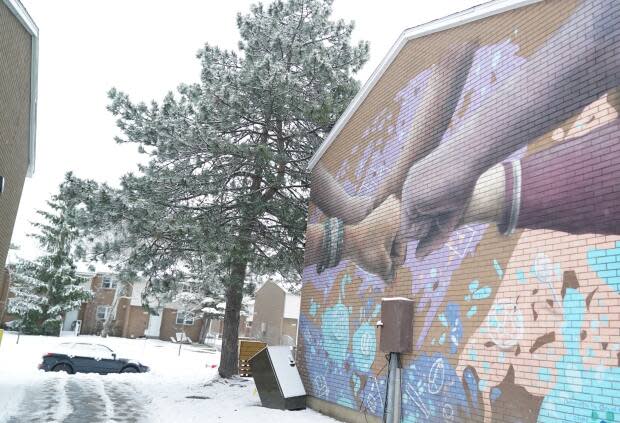'Everyone's afraid': COVID-19 hits close to home for families of Banff-Ledbury
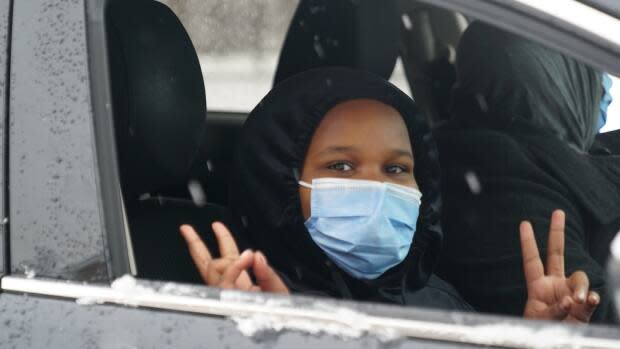
Families in Ottawa's Banff-Ledbury community are living closer to COVID-19 than those in other neighbourhoods, with fewer degrees of separation between known cases in a part of the city that's been disproportionately affected by the pandemic.
According to the the Ottawa Neighbourhood Study (ONS), an interdisciplinary population health study administered by the University of Ottawa that utilizes data from Ottawa Public Health (OPH), the Ledbury-Heron Gate-Ridgemont area had the city's highest rate of confirmed cases of COVID-19 as of Nov. 20.
Concerned about the possible stigmatizing effect on the neighbourhood, neither ONS nor OPH would comment further, so CBC set out to talk to families living in Banff-Ledbury to find out how deeply COVID-19 is affecting their lives.
Marian Abdi-Moussa and Samira Babour
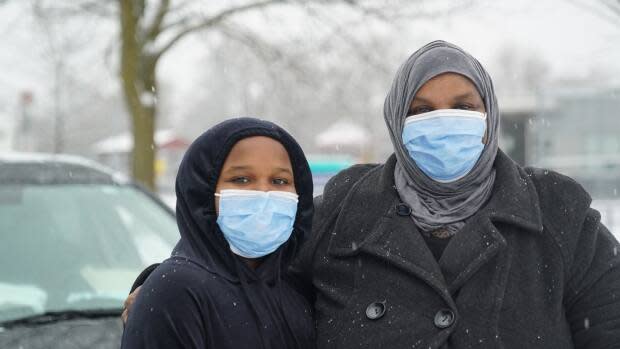
Marian Abdi-Moussa says COVID-19 has cast a pall over her neighbourhood.
"Really, it has," Abdi-Moussa said in French. "We've disappeared into our houses. We're confined. Everyone's afraid."
Abdi-Moussa had just taken her 11-year-old daughter Samira Babour to the COVID-19 testing Centre on Heron Road because she had a fever, stuffed nose and sore throat. Babour was dreading the test, because word had spread at school that it was unpleasant.
"All my friends said it hurt," she said. "They put something in my nose, very deep. It stung. It was burning."
Abdi-Moussa, 46, took the test, too.
"I'm a bit afraid, because I have asthma. I can't afford to get sick. I'm raising five kids by myself," she said. "If I get sick, it's going to be really tough."
"I'm so scared," Babour agreed. "I don't want to get my family sick."
Angela Nichol
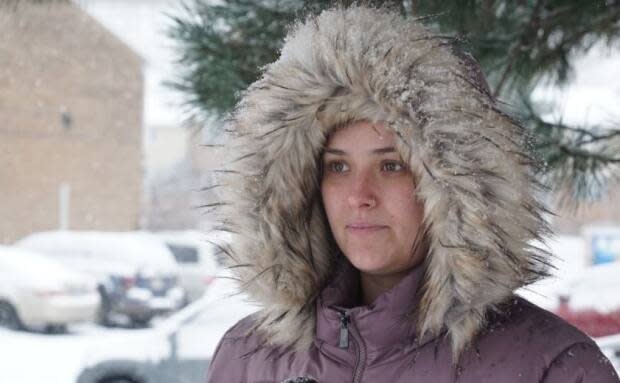
Until two weeks ago, Angela Nichol's five-year-old son was attending kindergarten virtually. She'd kept him home with his three-year-old sister because she was afraid he'd be exposed to COVID-19 at school.
It didn't gone so well.
"Being on the screen for three and a half hours a day was really hard for him," said Nichol, so she decided to send him back to school.
"It was difficult to choose," she said. "I'm nervous … if he brings it home. I have a mom who lives with me that's high-risk. She has COPD, a lung disease, so it's scary."
Nichol, 24, heard about Ledbury's disproportionate number of COVID-19 cases when her sister texted her the news from Barrhaven.
Nichol's first thought on receiving the news? "I'm not coming out of the house."
Marlene Ndopu
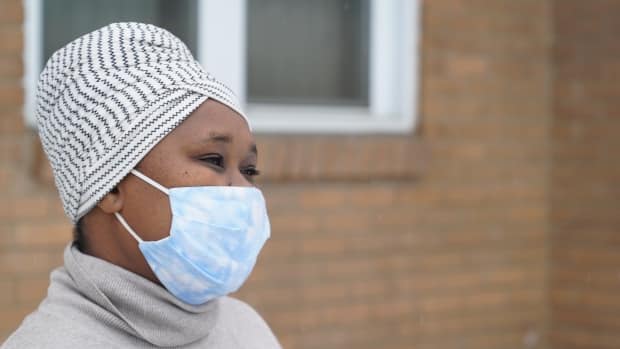
For Marlene Ndopu, the pandemic has affected just about every aspect of her family's life.
"It has affected my children's school, to be able to go out, to socialize, to be able to travel, to see family," said Ndopu, 45.
She lives near Banff and Ledbury avenues with four of her six children, including two school-agers who attend class in person.
"But unfortunately, I had to go this morning and bring one of my kids home because [someone in] the class had COVID-19," Ndopu said.
I feel like some people … in low-income neighbourhoods, they don't have those kinds of options. - Marlene Ndopu
Earlier in the fall, another daughter was deemed a close contact of a positive case at school. OPH advised the family to get her tested at Brewer Arena, and although the test was negative, she was still required to isolate.
"I was aware already that there was higher COVID-19 cases in this neighbourhood," said Ndopu. "Most of the people living [here] ... have close contacts." That includes neighbours who work in long-term care homes, she said.
Ndopu wants OPH to explore the root of the problem. "What is actually driving the high cases? COVID doesn't pick and choose who you are, what you do, what colour you look like, where you come from, what social status you are. It doesn't choose."
Ndopu believes infection rates are higher in her community because many of her neighbours don't have the option of working from home or ordering in. In other words, they simply can't avoid coming into close contact with others.
"I feel like some people … in low-income neighbourhoods, they don't have those kinds of options."
Mahamoud Hassan
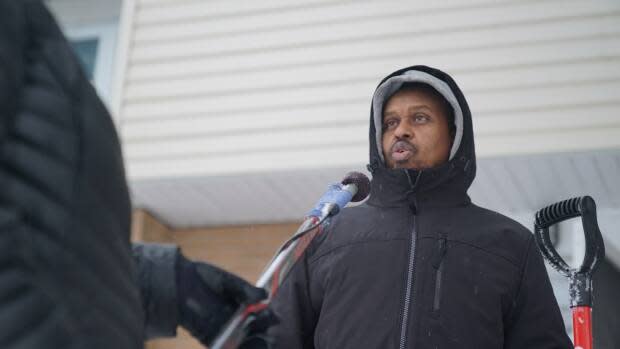
Mahamoud Hassan, 54, lives with his wife and their 11 children in a five-bedroom apartment. Hassan knew there have been cases of COVID-19 in the community, though his family hasn't been directly affected.
"We've been lucky," he said in French. "My neighbours? Yes, there have been several families that have been affected."
But Hassan was unaware that his neighbourhood had the highest rates of COVID-19 in the city. He plans to ask community leaders for more information and get the word out.
"We have to work together," he said. "We will redouble our efforts, our precautions, and let our neighbours know."
Crystal Hayes
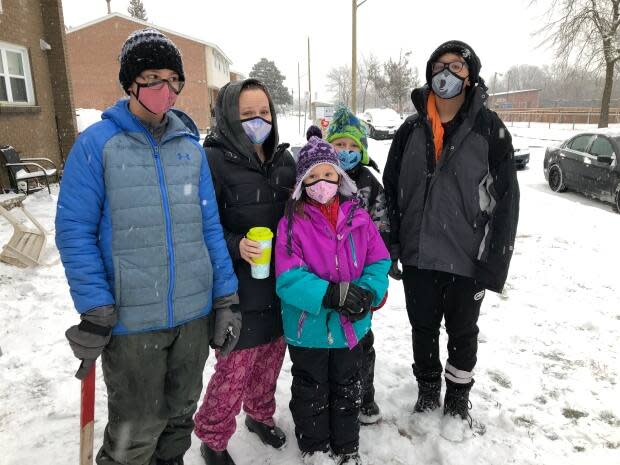
Longtime Banff-Ledbury resident Crystal Hayes has taken COVID-19 seriously from the very beginning, and made sure her four kids have, too.
"We've stuck pretty strict to the 10-and-under [rule] and only associating with certain households, and that's been really freaking hard," said Hayes. "It's just been really hard to stay together and keep sane."
Hayes, 35, doesn't know anyone who's contracted COVID-19. Still, she wasn't surprised to learn her neighbourhood had a disproportionate number of cases.
"There are so many kids, and they are [playing] so close together. I managed to keep mine in my house, in my backyard. A lot of people couldn't handle that, or had trouble keeping their kids away from other kids."
Hayes said she misses volunteering at a nearby community centre. She feels isolated as a stay-at-home mom in a pandemic.
"I'd like to help my community, but they're not allowing volunteers at this point," said Hayes. "That was my outlet."
